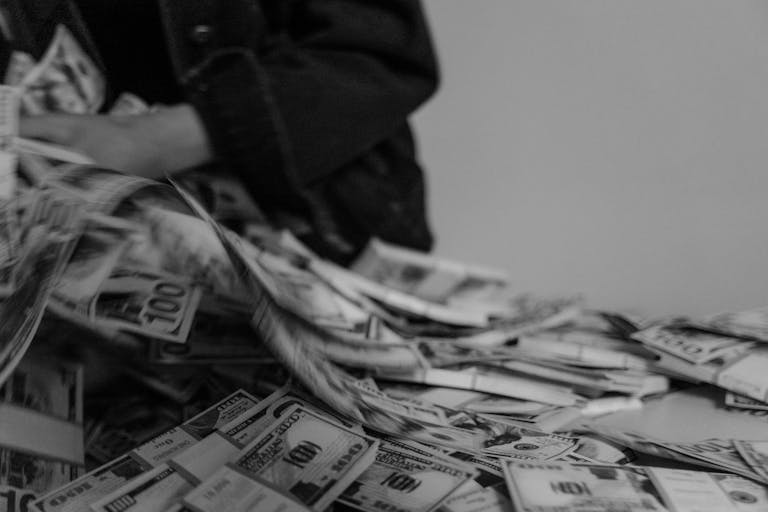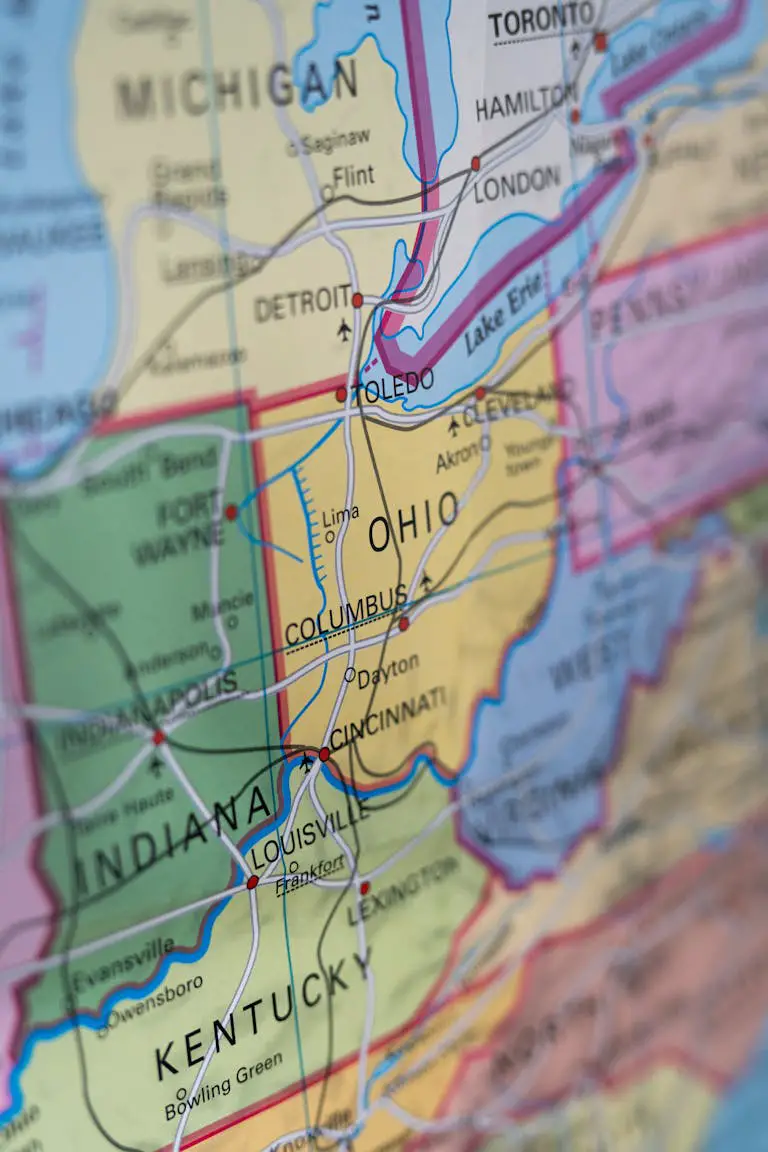How Many Felons In the US? Felony Conviction Numbers You Never Knew (and why you may be one too)
Introduction
Ever wondered how many felons are roaming the streets of the good ol’ USA? Buckle up, because we’re about to take a wild ride through the world of criminal statistics, and trust me, the numbers will knock your socks off! But here’s the kicker – by the end of this article, you might just realize that you, yes YOU, could be an accidental felon. Intrigued? Let’s dive in!
How Many Felony Convictions Are in the United States? The Jaw-Dropping Truth
Alright, drum roll, please… The big question: How many felons are there in the United States?
According to recent estimates in the criminal legal system:
- There are approximately 19 million felons in the United States
- That’s about 8% of the adult population
- Or, to put it another way, 1 in 12 adults has a felony conviction
But wait, there’s more! Let’s break it down further:
- 🚹 Men make up about 85% of the felon population
- 🔲 African Americans are disproportionately represented, accounting for 33% of the felon population despite being only 13% of the total US population
- Individuals with a felony-level criminal record face significant barriers in areas such as employment and housing, which affects broader labor force participation rates.
- 🏘️ About 3% of the total US population is currently under some form of correctional control (prison, jail, probation, or parole)
Before you start suspiciously eyeing your neighbors, let’s dive deeper into these numbers.
The Felony Conviction; Where Do These Numbers Come From?
These eye-popping statistics aren’t pulled out of a magician’s hat. They come from various sources, including:
- The Bureau of Justice Statistics
- Academic research studies
- Census data
- State and federal correctional databases
But here’s the catch – tracking the exact number of felons is tricky. Why? Because:
- Some states don’t keep comprehensive felony-level criminal records
- Many felons have multiple and previous felony conviction(s)
- Expungement and pardon processes can muddy the waters
The dynamics within the criminal justice system further complicate this task, as they create barriers that affect the accurate tracking of individuals with felony convictions.
So while 19 million is our best estimate, the number could be higher.
Real-Life Impact: More Than Just Numbers in the Criminal Justice System
These aren’t just numbers on a page – they represent real people with real stories. Convicted felons face significant challenges in various aspects of life, from securing employment to finding housing, often due to the stigma of their criminal records.
The impact of a felony conviction ripples through every aspect of a person’s life, often with long-lasting consequences. Let’s dive deeper into some real-life examples and explore the multifaceted effects of felony convictions:
Felony Conviction Employment Struggles
- John, a 45-year-old father of two, can’t find a job because of a felony conviction from his youth. Despite having valuable skills and a strong work ethic, he’s been unemployed for months. The “box” on job applications asking about criminal history has become his nemesis.
- Did you know? According to the National Employment Law Project, 27 states have adopted “ban the box” policies for public sector employment, giving ex-felons a fairer chance in the job market.
- Maria, a brilliant computer programmer, was convicted of a felony for hacking as a teenager. Now in her 30s, she’s barred from working in many tech companies, forcing her to freelance and often undersell her skills.
Professional License Losses Due to Felony Conviction
- Sarah, a talented nurse, lost her license due to a felony drug charge and now works as a waitress. Her story highlights how a single mistake can derail an entire career path.
- Robert, a former accountant with a felony conviction for embezzlement, can no longer work in his field. He’s had to completely reinvent himself professionally at the age of 50.
Voting Rights Restrictions Due to Felony Disenfranchisement Laws
James, a passionate political activist, lost his right to vote due to felon disenfranchisement, which highlights the impact of criminal convictions on voting rights.
In his state, voting rights are not automatically restored after completing a sentence.- Voting rights fact: As of 2021, only Maine, Vermont, and Washington D.C. allow people to vote while incarcerated for a felony.
Housing Challenges for People with Felony Convictions
- The Thompson family, including two young children, struggles to find housing because of the father’s felony criminal record. Many landlords automatically reject applicants with felony convictions and, leaving the family with limited and often substandard options.
Education Limitations for People with Felony Convictions
- Lisa, a bright 22-year-old with dreams of becoming a teacher, is barred from entering her chosen profession due to a felony conviction. Many teaching certification programs exclude individuals with certain types of criminal records.
Family Impact
- Michael’s felony conviction has affected his entire family. His wife had to take on two jobs to make ends meet, and his children face stigma at school. The stress has strained their relationships and mental health.
Convicted Felons Success Stories and Second Chances
But it’s not all doom and gloom. Many individuals with felony convictions have turned their lives around and made significant positive impacts:
- Mike, a former convicted felon, turned his life around and now runs a successful non-profit helping other ex-offenders reintegrate into society. His organization has helped hundreds of individuals find employment and housing.
- Catherine, convicted of a white-collar felony, now works as a motivational speaker and ethics consultant for corporations, using her experience to educate others about the consequences of unethical business practices.
The Ripple Effect on Communities due to People with Felony Convictions
The high number of convicted felons in the U.S. doesn’t just affect individuals; it impacts entire communities:
- Economic impact: Communities with high rates of felony convictions often face reduced economic opportunities and increased poverty rates.
- Social services strain: The families of incarcerated individuals often rely more heavily on social services, putting a strain on community resources.
- Cycle of crime: Without proper support and reintegration programs, some ex-felons may re-offend, perpetuating a cycle of crime in vulnerable communities.
The Push for Reform and Felon Disenfranchisement
Recognizing these far-reaching impacts, many advocates are pushing for criminal justice reform:
- Ban the Box initiatives to give ex-felons a fair chance at employment
- Voting rights restoration efforts
- Felony disenfranchisement reforms, highlighting legislative changes aimed at restoring voting rights to individuals with felony convictions
- Expungement and record-sealing programs to give individuals a true second chance
- Investment in rehabilitation and reintegration programs
These real-life stories and community impacts underscore the profound and often overlooked consequences of America’s high felony conviction rate.
They remind us that behind every statistic is a human story, a family affected, and a community changed. As we grapple with these issues, it’s crucial to consider not just the numbers, but the real lives behind them.
Plot Twist: You Might Be a Felon (And Not Even Know It!)
Now, here’s where things get interesting. Did you know that the average person unwittingly commits about three felonies a day? It’s true!
These accidental felonies can lead to a criminal conviction, which can have significant impacts on an individual’s record.
In our overly-legislated society, it’s easier to accidentally break the law than it is to remember all your passwords.
Some examples of accidental felonies:
- 📸 Taking a picture of a postal worker (yes, really!)
- 🐟 Mishandling a fish (looking at you, seafood lovers)
- 💻 Violating a website’s terms of service (oops, who reads those anyway?)
Feeling a bit paranoid yet? Don’t worry, I’ve got you covered! For more mind-blowing facts about life as a felon (accidental or otherwise), check out my free book “101 Things to Know as a Felon – But Were Afraid to Ask”. It’s packed with useful info, and I promise it’s more entertaining than watching paint dry!
Conclusion: The Takeaway
So, what have we learned? The number of convicted felons in the US is staggeringly high, with about 19 million Americans carrying a felony conviction. This has far-reaching implications for our society, affecting everything from restoring voting rights to employment opportunities.
But perhaps more importantly, we’ve learned that the line between law-abiding citizen and felon can be thinner than we think.
It’s a reminder that our criminal justice system is complex, sometimes overly harsh, and occasionally just plain weird (fish mishandling, anyone?).
As we navigate this crazy world of laws and regulations, let’s remember to approach the topic of felony convictions with empathy, understanding, and maybe a healthy dose of humor. After all, in the eyes of the law, we might all be just one mishandled fish away from a felony charge!







